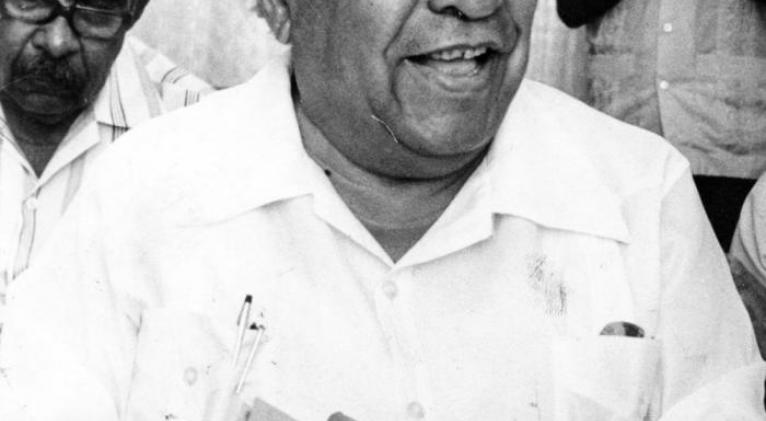Nicolás Guillén: A Pillar of Cuban Identity and Culture
especiales

Revered for the rhythmic richness, musicality, and lyricism of his prolific work, as well as for his full defense of racial equality and the prevalence of Afro-Cuban culture in literature and other manifestations, Nicolás Cristóbal Guillén Batista has established himself as one of the most prominent figures of Antillean art.
Born in Camagüey on July 10th, 1902, the young Guillén, during his academic career, found in the talent of great writers such as Quevedo, Góngora, Cervantes and other neoclassical, romantic and postmodern authors, as well as in the journalistic work of his father and in the benefits of typography and typing, the foundations to perfect his then incipient literary awakening.
His first verses graced the pages of the magazines Camagüey Gráfico and Orto and the Havana-based Castalia and he also collaborated with the newspapers El Nacional, Las Dos Repúblicas, El Camagüeyano and, mainly in El Diario de la Marina, in whose supplement «Ideales de una raza», he published the eight poems that made up his first book «Motivos de son», which made him obtain a wide popular resonance.
«Motivos de son» represented a watershed in national poetry, thanks to the melodic rhythm and masterfulness with which Guillén portrayed in his verses the autochthonous vocabulary and the indisputable features, customs, traditions and folklore of the Cuban black community, always discriminated and excluded by the bourgeoisie, as well as by the musicalization to which these were exposed by composers of the stature of García Caturla and Emilio and Eliseo Grenet and the later publication of the volume «Sóngoro cosongo», another multicolored stamp of the raciality in the Island.
And despite the ostracism and censorship he had to face once his political opinions became more vocative, the firmness of his pen prevailed in texts such as «West Indies Ltd», «Cantos para soldados y sones para turistas» and «La paloma de vuelo popular», oriented more towards political and anti-imperialist protest, patriotism and the struggle for justice, as well as «Poema en cuatro angustias y una esperanza», where he dealt with the impact of the Spanish Civil War and the assassination of Federico García Lorca, and «Tengo», where he supported the flourishing of the Cuban Revolution.
His fruitful work earned him important awards such as the José Martí Order and the National Literature Prize and international honors such as the Caro y Cuervo Order of Colombia, the Diploma of Human Merit in Mexico and the title of Distinguished Guest of the city of Caracas, as well as the Asan World Poetry Awards in India, the Ricardo Miró Award in Panama and the Honoris Causa in the universities of Jamaica, Havana, France, Ecuador, Colombia and Peru.
After struggling with a long illness, our National Poet died on July 17th, 1989 in the capital of the country, leaving behind an unrepeatable and influential artistic imprint, whose historical, cultural and literary transcendence, socio-political activism to make visible the Afro-Cuban cultural wealth and put an end to racial discrimination, together with the uniqueness of his writings, accredit him as one of the fundamental exponents of Latin American literature of the twentieth century.














Add new comment